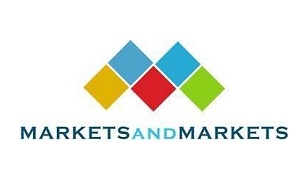
Introduction to Virtual Events
Events play a pivotal role in businesses. However, most businesses did not employ a virtual event strategy to remotely conduct conferences, trade shows, or professional meetings before the pandemic. The COVID-19 pandemic adversely affected workplaces, reducing the workforce and halting operations. This created a dire need for virtual event platforms. According to Aventri, a virtual event platform provider, 70% of marketers did not have a virtual event strategy during the initial days of the pandemic. With the introduction of remote work culture, businesses adopted cloud migration, virtual meetings, and remote collaboration. As per a recent study by Owl Labs, 16% of the companies worldwide are now fully remote. Furthermore, many companies prefer remote or hybrid work modal due to successful business operations. Consequently, the virtual event platform market has emerged strong, making virtual events essential for businesses in the post-pandemic scenario.
Virtual events, including webinars, conferences, trade shows, and exhibitions, are gaining vast popularity. These virtual events involve the use of video interaction. According to Cisco’s Global Visual Networking Index report, over 80% of the internet traffic will apply video consumption by the end of 2022. Additionally, organizations are moving towards hybrid events, offering wider reach and more convenience for attendees. Hybrid events provide the flexibility of attending events virtually or in person. According to the vFairs’ State of Hybrid Events Report 2021, around 76% of event planners planned to host one or more hybrid events in 2022. Virtual events save up to 75% of expenses compared to in-person events, as planners can save money on venue, staff, arrangement, meals, accommodations, and travel. Resultingly, event organizers are readily shifting to virtual events.
Impact of Virtual Events on Demand for Virtual Event Platforms
With the rise of virtual events, the need for virtual event platforms is increasing from multiple end users, including government organizations, schools, universities, corporates, and third-party event planners. Virtual events platforms assist end users with event registration and ticketing; event planning; audience engagement and communication; content management; sponsorship; and analytics and reporting. Other benefits associated with virtual event platforms include effective networking, reduced time and expenses, and learning and engagement opportunities.
Virtual event platforms are embraced by large and small- and medium-sized organizations, as they offer innovative interaction elements, added value, and genuine engagement. According to a global survey by Kaltura, a video cloud platform company, more than 70% of the audiences were gratified with the virtual experience, while more than 80% were inclined towards attending a virtual event compared to an in-person one. Evidently, the increased demand and preference for virtual events propel the use of virtual event platforms.
Significance of State-Of-The-Art Technologies In Virtual Events
Technological advancements in internet services, cloud, artificial intelligence (AI), augmented reality (AR), and virtual reality (VR) are making virtual event platforms more effective in delivering improved user experiences. These platforms can support the recreation of in-person events through AR, VR, AI, and 3D simulation. Furthermore, with the emergence of Metaverse, companies are exploring opportunities to deliver enhanced event experiences using state-of-the-art hardware such as head-mounted displays and VR headsets. For instance, Microsoft Mesh, a collaboration and communication platform, allows users to experience a shared 3D virtual presence using such hardware. The increasing partnerships, technology collaborations, and strategic acquisitions by the virtual event platform vendors are driving innovation in the market.
The rising emphasis on virtual events will likely continue in the coming years, owing to numerous benefits, including flexible attendance, improved audience tracking, enhanced event monitoring, and reduced costs. Furthermore, advanced technologies such as AR, VR, 3D simulation, cloud computing, AI, and Metaverse are bringing massive transformations in virtual events, resulting in the growth of the virtual event platform market.
Request Sample Pages: https://www.marketsandmarkets.com/requestsampleNew.asp?id=198777256
Media Contact
Company Name: MarketsandMarkets™ Research Private Ltd.
Contact Person: Mr. Aashish Mehra
Email: Send Email
Phone: 18886006441
Address:630 Dundee Road Suite 430
City: Northbrook
State: IL 60062
Country: United States
Website: https://www.marketsandmarkets.com/Market-Reports/virtual-event-platform-market-198777256.html
